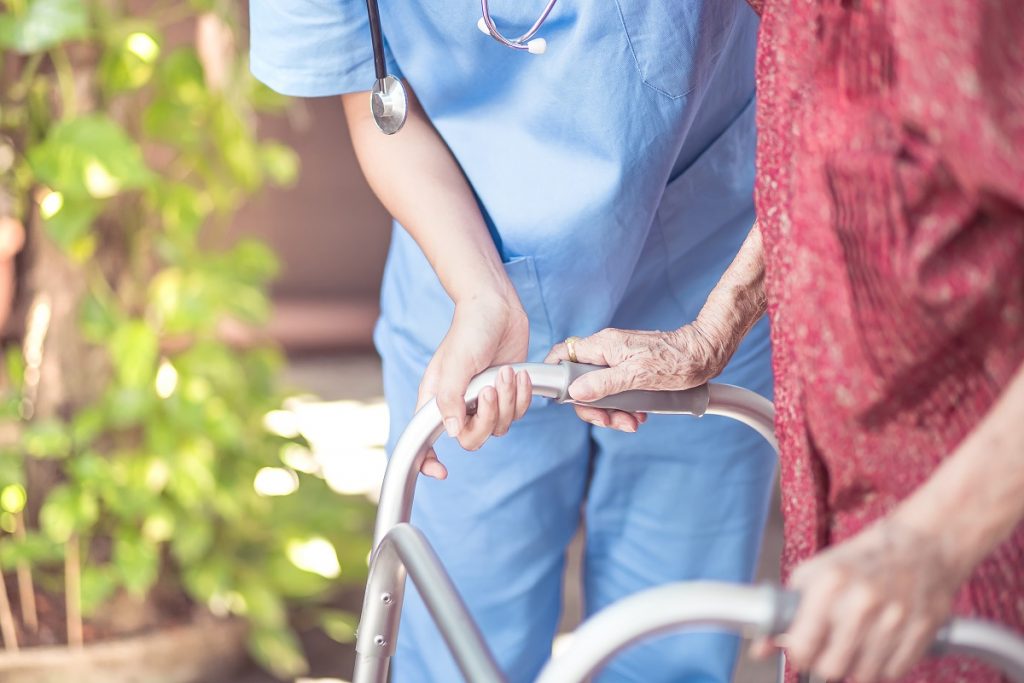Many people require assistance due to problems with mobility. Issues with mobility might be a result of injury or old age. A loss of independence can be frustrating for anyone, especially the elderly.
In the UK, there are a number of manufacturers of healthcare equipment that seek to improve patient’s lives with improved mobility.
The global industry behind personal mobility devices was worth $14.9 billion in 2021. This equates to about £12 billion at today’s exchange rate.
There is more to improving patients’ overall care than just mobility aids, however. Hospital-grade equipment is used to bring comfort to those in recovery. And medical equipment helps people in later life remain independent.
How is hospital-grade equipment being used to help care for patients?
Technology is being used now to improve patient care in innovative ways. Telemedicine is helping improve wound care and general health for those that cannot travel to doctors or who need urgent care. And other simpler pieces of equipment are helping patients at home to have a more comfortable quality of life.
Toilet commode chairs
The true benefit of this equipment for those patients seeking more independence is that it can be used at home.
A hospital-grade commode toilet may be low-tech but it can make life much easier for patients in recovery, or struggling to move about. Staircases are common in British homes, and these can present quite a challenge to anyone struggling with mobility problems.
Commode toilet seats can be positioned anywhere, including in a bedroom. Therefore, journeys to the toilet can be cut down significantly.
Rollator walkers
Wheeled walkers offer both mobility and stability for patients with mobility concerns. These walkers are especially useful for the frail and elderly and help anyone who requires some support when walking.
Bariatric beds
Being immobile or recovering from illness can result in a lengthy period in bed. Unfortunately, bedridden patients can experience bedsores and ulcers.
Bedsores occur when a patient spends an extended time being bedridden due to an accident or illness. Lying in the same position puts pressure on the skin causing sores and ulcers.
Bariatric beds bring comfort to larger patients who are immobile and help to prevent bedsores. Bariatric mattresses incorporate features including alternating pressure to prevent sores and to help treat them.
Standing aids and hoists
These mobility aids are beneficial to patients who experience difficulty moving to a standing position. Patients with arthritis or spinal cord injuries can benefit from standing aids, as can caregivers who struggle to lift their patients.
Standing aids are useful pieces of equipment in the home and hospital environments.
Wheelchair tables
A simple piece of equipment indeed. But, one that shows how simple tech can improve daily lives. Wheelchair tables enhance dining experiences in care homes and elsewhere.
Bath shower chairs
Bath times can be particularly arduous, and risky for elderly patients. Bathrooms are awkward places for anyone with mobility issues, and they present slipping hazards.
Patients can choose from a selection of bath shower chairs and experience independence when washing. Shower chairs reduce the risk of slips, and let individuals enjoy independent self-care.
Who can benefit from care and mobility aids?
The mobility and care aids listed here represent a small portion of the equipment available today. Nonetheless, they are important in improving the comfort of many people’s lives.
The elderly often need support with walking, as do patients recovering from injury. Individuals who are struggling with obesity will find bariatric beds provide a comfortable night’s rest.
Anyone who is experiencing the following conditions could benefit from some form of mobility or care equipment:
- Arthritis
- Obesity
- Gout
- Diabetic ulcers
- Back injuries
- Cerebral palsy
- Broken limbs or fractures
- Breathing difficulties
- Visual impairment
Anyone who is experiencing problems with balance or movement would benefit from some form of mobility aid.
The importance of comfort and independence for patients
Retaining independence helps to give elderly patients in particular a sense of purpose. Keeping some form of independence helps individuals to carry on with activities that have previously been enjoyed, and staying active is vital to health.
Patients in later life are often averse to accepting help. Independent patients are more likely to take help when offered.
Comfort is also crucial for ensuring the quality of life for anyone with mobility issues. Obesity can make movement difficult, but bariatric beds and hoists improve comfort and mobility.
Summary
Quality of life is important for recovery in patients. Enjoying independence and comfort helps ensure mental and physical well-being. By improving mobility for the elderly or disabled, individuals will retain independence.
Being able to carry out daily tasks free from others helps patients to remain physically and mentally active. And this independence is vital for mental health in the elderly and for patients recovering from illness.

